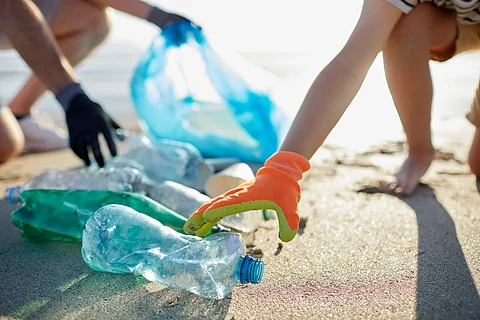

The Global Plastic Action Partnership (GPAP), an initiative launched by the World Economic Forum, has recently reached a significant milestone by expanding its network to include 25 countries.
With a combined population of over 1.5 billion people, the expansion highlights a growing global effort to address the urgent issue of plastic pollution. Seven new countries — Angola, Bangladesh, Gabon, Guatemala, Kenya, Senegal, and Tanzania — have joined this collaborative effort, bringing fresh momentum to the initiative's goal of advancing sustainable plastic waste management solutions worldwide.
GPAP focuses on creating a circular plastics economy, where plastic is reused, recycled, and managed more sustainably.
This approach aims to reduce the environmental impact of plastic waste, which is severely disrupting ecosystems, harming biodiversity, and threatening human health. Every year, six million tonnes of plastic waste enter the oceans, with much more polluting land.
GPAP’s goal is to stop plastic waste leakage and foster a shift toward sustainable materials, benefiting both the environment and the economy.
One of the key elements of GPAP’s strategy is the development of National Action Roadmaps—tailored, country-specific plans designed to tackle plastic waste. These roadmaps have already led to notable successes, including the mobilisation of $3.1 billion in investments and the creation of safer jobs for informal waste workers.
The initiative is also contributing to a reduction in greenhouse gas emissions, as plastic production and waste management account for a significant portion of global emissions, including potent methane gases from landfills. GPAP’s emphasis on circularity can help mitigate these emissions while fostering green jobs, with the potential to create up to 6 million jobs worldwide by 2030.
Clemence Schmid, Director of GPAP, emphasised the importance of this expansion, noting that the partnership is not just symbolic but represents concrete commitments to transforming how plastics are produced, managed, and reused.
GPAP’s collaborative approach, which includes governments, businesses, civil society, and experts, is designed to create sustainable and inclusive economies while tackling plastic pollution.
The fight against plastic waste is critical, as it is not only damaging the environment but also contributing to climate change.
The plastics sector is responsible for an estimated 1.8 billion tonnes of greenhouse gas emissions annually, and much of this comes from the disposal and degradation of plastics. Through GPAP’s systemic waste management solutions, countries can reduce emissions and shift towards more sustainable practices.
Looking ahead, GPAP aims to continue driving collaborative action and innovation to transform waste into valuable resources.
By expanding its network and refining strategies to tackle plastic pollution, GPAP is working toward a circular economy that can foster equitable economic growth and environmental resilience.
Overall, GPAP’s expansion to 25 countries signifies an essential step in the global fight against plastic pollution, with a focus on sustainability, climate resilience, and economic growth through green initiatives.